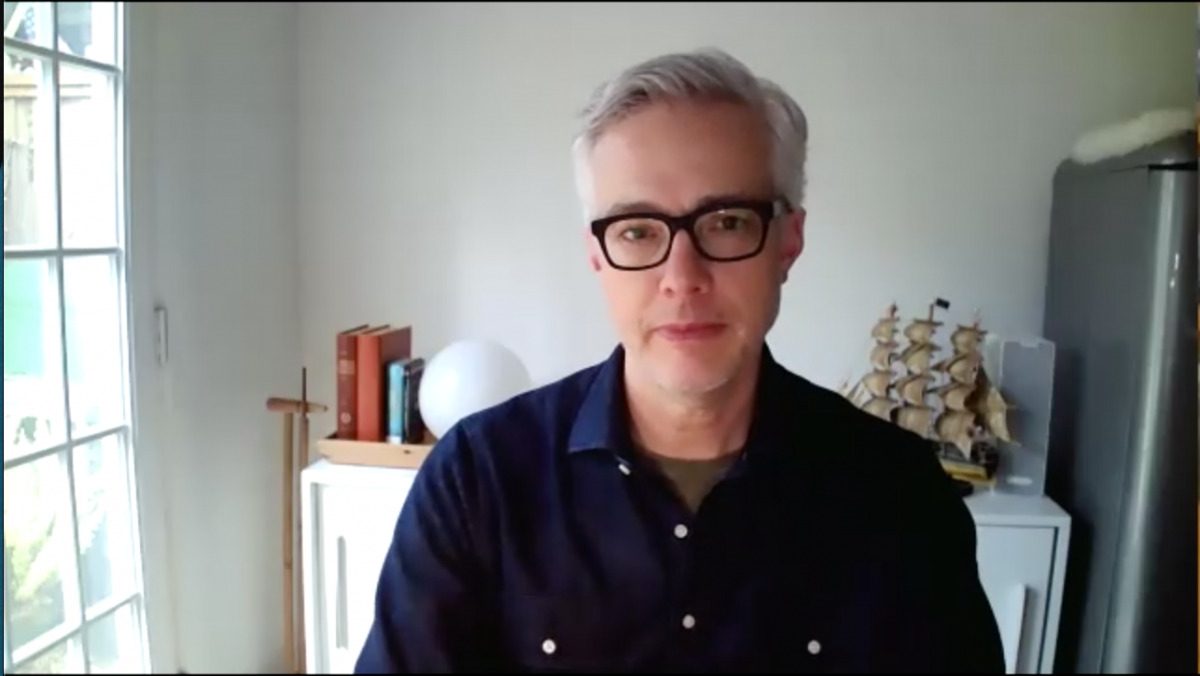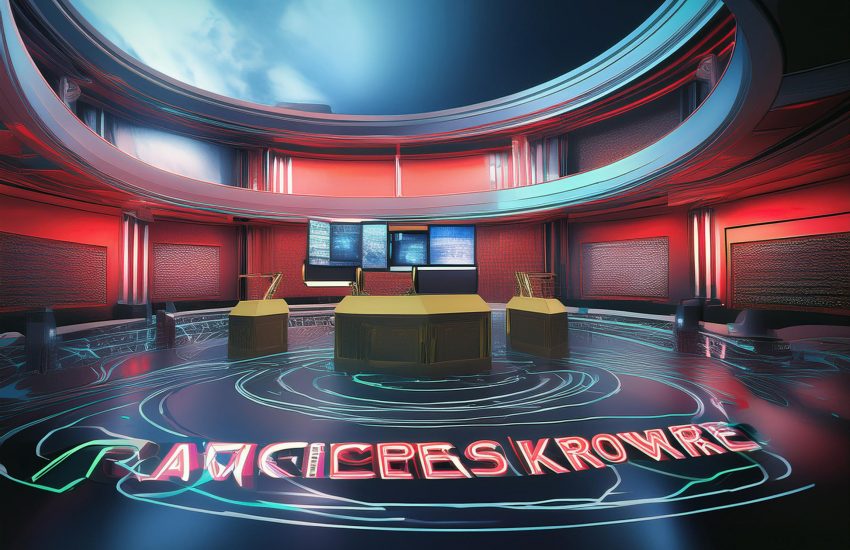How David Schechter sees the future of local climate coverage
In November 2019, David Schechter of WFAA-TV Dallas and the award-winning Verify Road Trip video series took conservative Texan Justin Fain on a journey to see if he could convince him that climate change was indeed real. The two went from Texas’ prestigious university campuses to the most adversely affected parts of Alaska to see if Justin came around to acknowledging the reality of global warming and its effects.
This was Schechter’s first piece directly addressing climate change. He spoke with Storybench about the need for local and national outlets to cover this often controversial topic, his advice for reporters and more.
This interview has been edited for clarity and length.
Mark: Tell me a little bit about yourself as a reporter and how you got around to covering climate change. Can you tell me what pulled you in this direction?
David: Well, about five years ago, I started doing this franchise called Verify Road Trip, where we take a guest with us on the road and then they can see what I see and then they can ask questions and reach their own conclusions.
We’ve had a lot of adventures, but I felt like I would challenge myself and push the boundaries of what I’m doing. So, climate change felt like it was certainly a boundary question because it’s so vast, it’s so controversial. It’s not really covered at the local level. We generally don’t have the confidence to cover it very well, in my opinion, and we can talk about that. And so for all those reasons, and the fact that there was a lot of disinformation around it, I felt like that was the topic.
Mark: Talk about why and how reporters can build more confidence in writing and reporting on climate change. Obviously, you have to talk to your audience and you have to gauge where they’re at and come to them, but what built that confidence for you?
David: What gave me the confidence is admitting that I didn’t have any confidence and I was being transparent about that with the audience. I’m taking this guy Justin with me and he’s going to learn something, but I’m going to as well. I said at the beginning of that story, if I find out that it’s a big deal, then I guess I’m going to have to do something about it. And going through that process has changed my life in many ways in terms of understanding climate change and understanding what my role is as a person, what my role is as a professional.
First though, I had to go find [out] about climate change. I went to established sources to see, “What does the United Nations and the IPCC say?”, and they make it clear that it’s irrefutable.
I’m advocating at this point that reporters in general need a few pieces of information so they can tell their audience why they’re saying this, but also they can tell our editors who are also leery of what feels like taking a side. Editors want to say, “Well, there are people out there that feel both ways and we need to listen to both sides.” And oftentimes that’s true, but it’s not true in this case. You’ve got to convince your audience and you’ve got to convince your boss.
Mark: How should journalists report on climate change at a local level?
David: We need reporters who can talk about climate change when necessary to a relevant story. That’s the first challenge for local journalism. I don’t think it’s fair to expect that we’re going to have a local reporter who covers climate change. We hardly have a local reporter covering one exclusive beat. So it’s not at that point, it’s not big enough of a local story to do that because some of the most unusual things are happening elsewhere. So, all that to say, we need to find a way to fold it into what we do on a daily basis.
I don’t think we need to go out and convince every person who doesn’t believe that it’s happening. I think we need to accept the science as an organization and then insert it, when necessary, into the stories, how it’s intersecting with whatever is going on.

Mark: What are the storytelling methods that you think work most effectively for this topic?
David: I think my answer is not going to be what you expect, but I think it’s to be entertaining. Whatever way you’re going to do it, it could be animation or visualization or interviewing experts and you’ve got to have all that, but we try really hard to innovate and keep you engaged in this.
And so whatever you do, entertain people. It doesn’t have to be funny. It doesn’t have to be super sad. But you need to earn it and use all the tools that are available to us in terms of storytelling. And you need to use them all: pace, music, laughter, cheers. All that stuff that makes the essence of a great story. If you can combine that into what you’re doing, people will pay attention to it.
Mark: What’s the reaction been to your climate reporting?
David: I think being local was really helpful and the level of trust and openness in local markets is much higher than in national news. And so it’s been great. The reaction to that story in particular is exactly what you would expect: 70 percent of people are saying, “Thank you for sharing that. We really respect Justin for his ability to keep an open mind; this is serious and scary so thank you for taking it on.”
Mark: What would you say to reporters, editors and producers who are trying to make climate-related stories?
David: Well, you have to, as an organization, say, “How does everyone in this room feel about us saying the climate is changing, that humans are mostly to blame and that the long term implications are going to be potentially catastrophic?” I mean, what I just said is not in dispute, but it makes people really nervous. They don’t want to say that. They don’t want to talk about that because someone’s going to tell them that we’re a bunch of lefty liberals for saying that.
But that’s what you need, as an organization, to say: “Okay, we are going to start including this in our coverage, because this is what we need to be saying.” But it’s not every time you produce a story we need to have that conversation be front and center. But if it’s about tornadoes and we don’t know if climate change affects tornadoes, but we do know that the price of insurance is going up from storms like these because there’s destruction around the country because of climate change, you can get it in there. So, there has to be the understanding that we are all on the same page about what’s happening.
Mark: Do you think that people seeing these continual examples right in their face, like California and Texas, inspire reporters to be more confident?
David: Yes, I think we’re on the cusp of that. Editors and reporters are probably gaining confidence by having an administration that doesn’t challenge it, and that makes it a lot easier. There’s a lot less heat on you. So, I think that makes it easier for me all the time.
- How David Schechter sees the future of local climate coverage - August 13, 2021
- How and why journalists must navigate the uncertainty of political forecasting - March 23, 2021
- How IndyStar’s Emily Hopkins helped break a nursing home scandal in Indianapolis - November 23, 2020





